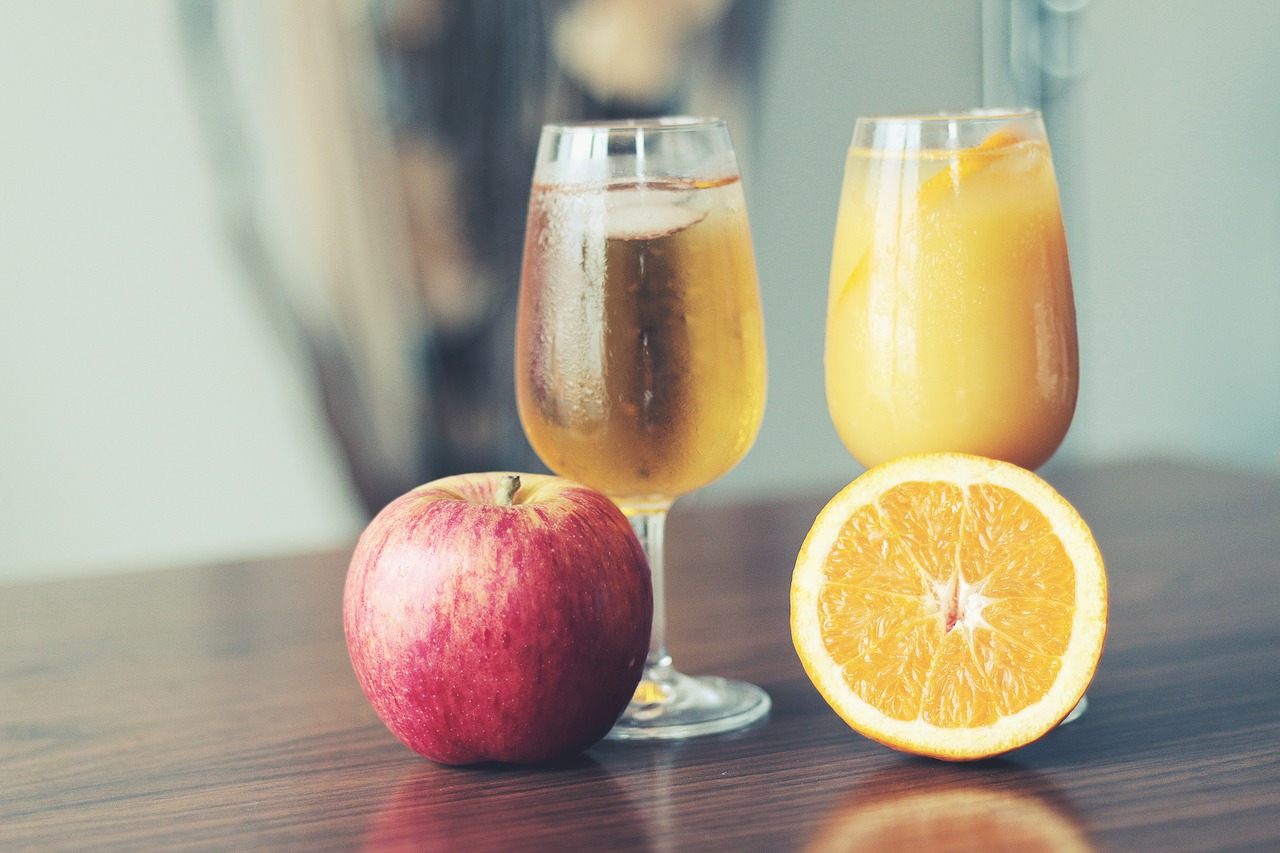Maybe re-think that glass of orange juice
100 percent fruit juices aren’t as healthy as you thought
Jeanette Ferrara • October 15, 2015

Although 100 percent fruit juices like apple juice and orange juice might seem healthy, looks can be deceiving. [Image Credit: Pixabay User StockSnap]
Apples are the favorite fruit of America’s children, according to a new study. But even though apples are the most popular fruit, it is not the most popular source of fruit.
Fruit juices actually account for 34 percent of total fruit intake, while whole apples only make up 20 percent. And even though apples are the more popular fruit, citrus juices (especially orange juice) are more popular than apple juice, contributing about 15 percent of total fruit consumption. Apple juice is responsible for just 9 percent. Younger children consumed more juices than older children.
Despite the popularity of fruit juices, they aren’t a substitute for the real thing. Even the 100 percent fruit juices used in the study, which are made solely from the juice of natural fruits and have no added sweeteners or preservatives, pose a potential health risk. There’s no sugar added, but 100 percent fruit juices are high in natural sugar. And they don’t have any of the fiber whole fruit provides. The fiber in fruit is what makes it so filling, and so healthy. Without the fiber and only the sugar found in whole fruit, fruit juices aren’t actually that healthy.
Parents trying to set a healthy example for their children should swap the apple juice out of their child’s lunch and replace it with a piece of fruit — and a water bottle if they need something to drink. Another option is making “homemade juice” by putting whole fruit into a blender — that way, you can still drink your fruit but without losing all of the benefits of fiber.
Given the obesity epidemic in America’s children, it is intriguing that consumption levels for fruit are on the rise. And previous studies do suggest that drinking fruit juice instead of eating whole fruit increases your risk of obesity. The message seems clear: Even though fruit juice comes from fruit, it’s not the same.
3 Comments
Hi,
I never thought that drinking fruit juice instead of eating whole fruits increases obesity. How did this happen? They are the same fruit after all. Thank you for sharing this information. Great read.
Most orange juice is made from concentrate in factories where tons of sugar and preservatives are added making orange juice anything but good for your diet health. There is already a ton of natural sugar in oranges. There are several oranges in one glass of orange juice. Think of all the natural sugar in one glass of orange juice. You just don’t need any more than that.
One at Two